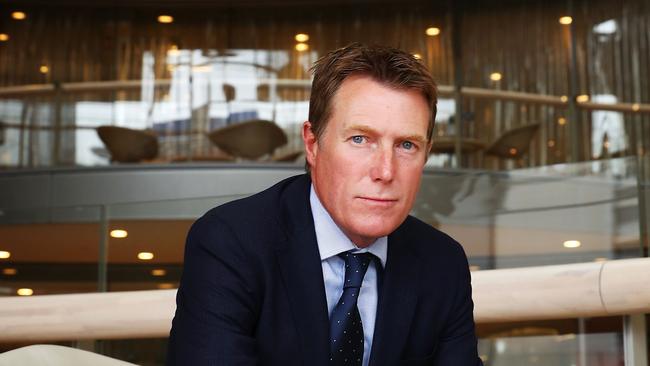Porter rebuffs media bid to start again on treason laws
Christian Porter has rejected a push by media companies to scrap the review of new treason laws and start again.

Christian Porter has rejected a push by media companies for parliament to scrap its review of new treason laws and start again, after the Attorney-General last week proposed changes to the laws.
Mr Porter told The Australian he would move to amend laws aimed at combating what agencies say is “unprecedented” levels of foreign interference and offer a limited freedom of speech defence for journalists and media companies obtaining classified documents. He ruled out blanket exemptions for journalists, who would still face potential criminal charges for reporting on classified government material.
The media organisations, which include News Corp Australia, publisher of The Australian, Fairfax Media, AAP, the Media Entertainment and Arts Alliance, SBS and ABC, made a supplementary submission to the Parliamentary Joint Committee on Intelligence and Security on Monday. They argued that since stakeholders such as the media gave testimony to the committee on the original version of the laws, not the version with the changes proposed by Mr Porter, there may be a need for a whole new inquiry.
Mr Porter rejected the idea and said the committee had enough time to deal with drafting changes made in the process of reviewing the laws that will be passed on to the committee.
“Given the committee does not intend to report until late March, there should be ample time for the committee to consider these drafting amendments,” a spokesman for the Attorney-General said.
He said it was likely there would be further changes after the committee reports.
In the submission, the media companies argued there were now two options for the government in light of Mr Porter’s intervention.
“This could be achieved by removing the bill from the PJCIS process — in other words, ceasing the PJCIS review of the current bill; have the department redraft the provisions as per the Attorney-General’s direction and release an updated bill as an exposure draft for consultation or begin a fresh PJCIS consultation on the updated bill,” the submission said.
“Another option could be to remove schedule two (to which Mr Porter has suggested the government will make changes) from the bill, undertake redrafting, and release an updated schedule two as an exposure draft for consultation or begin a fresh PJCIS consultation on schedule two.”
The organisations said the minister’s comments were “encouraging” but they reserved their comment for the moment.
The Turnbull government last year introduced two new bills, both updating laws to criminalise forms of covert, deceptive conduct on behalf of foreign interests and introducing a new registration scheme that would require people to appear on a public list if they acted on behalf of a foreign company or state.
Last month, universities, charities, business, media, legal and religious groups all appeared before a parliamentary joint committee on intelligence and security hearing, arguing that new foreign interference legislation was too broad and did not involve adequate consultation.


